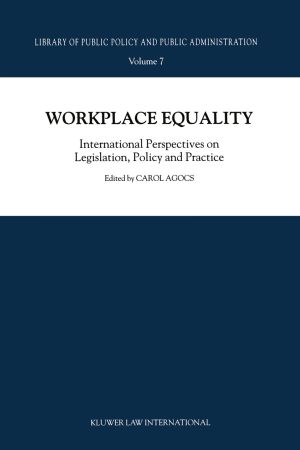
In this era of globalization, new forms of diversity co-exist with longstanding patterns of systemic discrimination in employment on the basis of gender, race, religion, ethnicity or culture, disability, aboriginal status or immigrant status. Several countries have responded to discrimination by implementing affirmative action or employment equity policies. These proactive approaches seek to end and prevent discriminatory employment practices and to work toward a workplace that is representative of the diversity of the labour market.
Workplace Equality provides theoretical perspectives on systemic discrimination in employment and an overview of policy and institutional responses in eight countries, focusing on affirmative action and employment equity policies. Chapters contributed by leading experts from each country examine workplace equality policies in Australia, Canada, India, Malaysia, the Netherlands, Northern Ireland, South Africa and the United States. Legislation, policy development, implementation and effectiveness are situated within the changing political context of each country, and legal as well as social issues and debates are examined.
As a unique international comparative survey and assessment of affirmative action and employment equity policies, Workplace Equality is a sourcebook for researchers, practitioners and students in the fields of public policy, employment law, sociology, industrial relations and human rights.